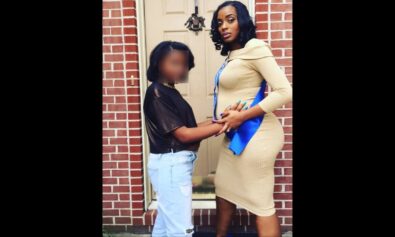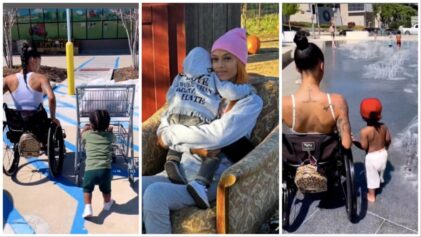Each time I catch a glimpse of chilling footage from the recent tragedies in this country (the Newtown shooting, the Boston bombing and, now, the Oklahoma tornado), I find myself looking at the children in the images — terrified, shocked, changed. I see their faces when I close my eyes to sleep at night.
I know what that feels like.
When I was 9, my mother had a brain aneurysm — suddenly, out of nowhere — at 3 a.m. one October night. I stayed in my bedroom during the worst of it. Something told me that my young eyes, blinking like the intermittent beam of a lighthouse, shouldn’t see what was happening in my parents’ bedroom. At 43, she had been perfectly healthy. She had sung me “Edelweiss” the night before, the room filling with her soft voice and flowery perfume; her hand, still chilled from cold cream, brushing my cheek.
Sirens roared up our twisty, steep driveway; the sound was deafening. Ambulances help people, I reminded myself then. Years later, in my 30s, the shrill and the lights of ambulances would induce acute anxiety, a feeling of suffocation. For a gut-wrenching two hours on that October night, I didn’t know if my mother would survive. I didn’t understand (and wouldn’t, for many years) what a brain aneurysm was. My brother and I went to our godparents’ house to wait it out. Friends of my parents arrived: trembling, crying.
And then my dad returned from the hospital, too quickly. She was gone.
From my fourth-grade perspective, one that sought safety — zoomed in on anyone who paid bills and held a job for a definition of normal — watching the grown-ups around me fall apart was terrifying. A “please, make it stop” kind of terrifying. This particular fear was so mind-blowing to me at the time that my brain cataloged it as “strange” instead. Strange was a word I could understand: it felt safe, detached. Staying disconnected is one way, especially for children, to cope with trauma, anxiety and grief.
After my mother died, nothing felt safe anymore. I thought adults were supposed to bring me warm milk in my favorite pink mug; tuck me back in after I’d run to their room, sweaty from a nightmare about a “Wonder Woman” episode I’d seen; tell me that everything was going to be all right. Why wasn’t anyone telling me that it was going to be all right?
Read More: Jackie Ashton, parenting.blogs.nytimes.com


